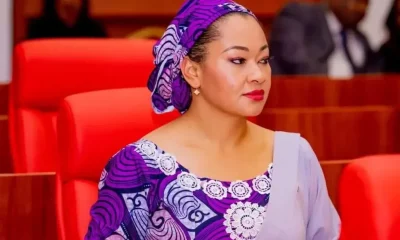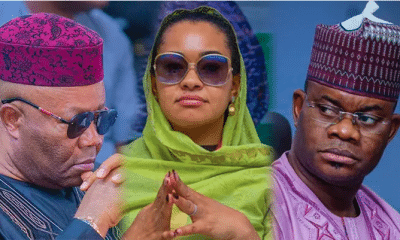Politics
Follow My Lead – Yahaya Bello Advises Politicians On The Use Of Thugs

Governor Yahaya Bello of Kogi State has advised Nigeria politicians to stop the use of thugs and criminals during elections to help make the country a safe place.
Naija News recalls that electoral observers had said the November 16, 2019 Kogi State Governorship Election which gave Bello a second term was marred with violence and bloodshed.
But in an interview on Channels Television’s Sunrise Daily, Yahaya Bello insisted that contrary to what is in the public space, he won his re-election without the use of ‘boys’ or thugs.
“When politicians begin to stop the use of thugs, touts or some group of criminals, that is when we will begin to have safety and security in our land,” the governor said.
He stated that thugs used and dumped by politicians during elections turn out to be “hydra-headed monster” and criminal elements who now terrorise Nigerians.
The Kogi governor claimed that thuggery was the norm in the north-central state before he came into power in 2015.
“When I came on board, I inherited a state that was largely divided along several lines. For you to aspire to be anything politically in Kogi State then, you must have what we call ‘boys’ or thugs or touts and then use it to intimidate people during political dispensations,” Bello said.
“Once the political exercise is over, the so-called boys or thugs or foot soldiers would be abandoned and then left to themselves and by that, they breed into something else or a hydra-headed monster that you will not be able to curb at the end of the day. There are several history and intelligence to that across the country.
“But I refused to play that kind of dangerous or unnecessary politics when I came on board. My ascension to office is known to everybody in the world. I chose my path immediately and decided to deal with criminals irrespective of political affiliations by using the laws passed by the Kogi State House of Assembly and the existing security architecture.“










